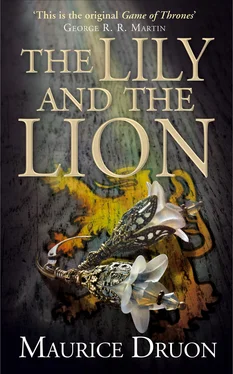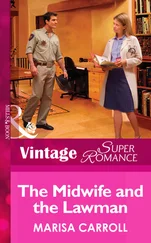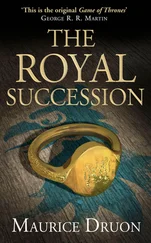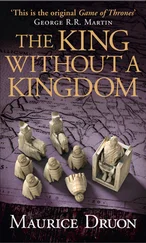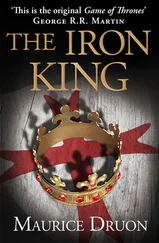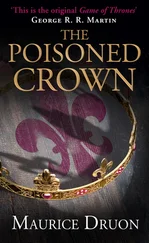Through the window, which was open on to a bright and sunny sky, the cathedral bells could be heard ringing a full peal, drowning the clatter in the town of the trains of the five kings and their Courts.
For, indeed, on this June 6th, 1329, there were five kings in Amiens. No chancellor could remember such a gathering. To receive the homage of his young cousin of England, Philippe VI had invited his relations and allies, the Kings of Navarre, Bohemia and Majorca, as well as the Count of Hainaut, the Duke of Athens and all the peers, dukes, counts, bishops, barons and marshals.
There were six thousand French horsemen and six hundred English. Charles of Valois would not have disowned his son, nor indeed his son-in-law, Robert of Artois, had he been able to see such an assembly.
The new Constable, Raoul de Brienne, had had to organize the billeting as his first duty. He had done it well, but had lost half a stone in the process.
The King of France and his family were occupying the Bishop’s Palace, of which a wing had been allotted to Robert of Artois.
The King of England had been installed in the Malmaison, 8and the other kings in various burgesses’ houses. The servants slept in the passages, the grooms camped outside the town with the horses and baggage-trains.
An enormous crowd had come in from the immediate countryside, the neighbouring counties, and even from Paris. The less fortunate slept under porches.
While the chancellors of the two kingdoms were arguing once more about the terms of the homage, since even after so much negotiation no precise formula had yet been established, the whole nobility of Western Europe spent six consecutive days in jousting and tournament, being entertained by masks, jugglers and dances, and feasting spendidly from noon to starlight in the palace gardens.
Market-gardeners, 9punting their flat-bottomed boats through the narrow canals into Amiens, were bringing irises, buttercups, hyacinths and lilies to the water-market. These were spread in the streets, courtyards and halls through which the kings passed. The town was saturated with the scent of crushed flowers, of pollen sticking to men’s boots, and it mingled with the strong odours of the horses and the crowds.
And the food, the wine, the meat, the spices and the cakes! Pigs, sheep and bullocks were being driven in continuous procession to the slaughterhouses which were working night and day; trains of wagons brought the palace kitchens bucks, stags, wild boar, roe-deer, and hares; sturgeon, salmon and mullet from the sea; pike, bream, tench and crayfish from the rivers; and poultry and game of all kinds, fine capons, fat geese, resplendent pheasants, swans, pale herons and peacocks with tails full of eyes, Barrels of wine were on tap everywhere.
Anyone who wore a lord’s livery, down to the most junior lackey, put on an air of importance. The prostitutes were in a frenzy. The Italian merchants had gathered from the ends of the earth for this fabulous fair organized by the King. The façades of the houses were hidden by the silks, brocades and tapestries hanging gaily from the windows.
There were too many bells and fanfares, too much shouting, too many palfreys and dogs, too much food and drink, too many princes and pickpockets, too many whores, too much luxury, too much gold, and too many kings. It made one’s head spin.
The kingdom was intoxicated by the sight of its own power, as Robert of Artois was intoxicated by his reflection in the mirrors.
Lormet, his old valet, who in spite of a new livery was spending his time grumbling amid the general rejoicing – largely because Gillet de Nelle was becoming too important in the household and because there were too many new faces about his master – came in and murmured: ‘The lady you were expecting has arrived.’
Robert turned quickly.
‘Show her in,’ he said.
He winked meaningly at the Countess, and waving his arms drove everybody towards the door, shouting: ‘Get out, all of you! Form up in procession in the courtyard.’
For a moment he stood alone by the window, looking out on the crowd which had gathered in front of the cathedral to watch the great go in; a cordon of archers was finding some difficulty in controlling it. The bells above were still pealing; the scent of hot pancakes suddenly floated up to him from a stall; all the neighbouring streets were full of people; and the Hoquet Canal was so crowded with boats that the glimmer of the water was scarcely visible.
Robert of Artois felt triumphant, and he would feel even more so shortly, when he went up to his Cousin Philippe in the cathedral and uttered certain words that would make the assembled kings, dukes and barons start in surprise. None would emerge as happy as he went in; and this would be particularly true of his dear Aunt Mahaut and the Duke of Burgundy.
He would certainly be wearing his peer’s robes for the first time to advantage! Twenty years and more of stubborn struggle would receive their reward today. And yet, behind his pride and joy, he felt a sense of regret. What could be the cause of it when fate was smiling on him and all his hopes were coming true? Then suddenly he knew: it was the smell of pancakes. A peer of France, who was about to claim the county of his ancestors, could not go down into the street wearing his coronet with eight fleurons and eat a pancake. A peer of France could not loiter about the streets, mingle with the multitude, tweak a girl’s breast, and go brawling through the night in company with half a dozen whores, as he used to do when he was poor and twenty. Yet his nostalgia reassured him. ‘Anyway,’ he thought, ‘the life’s not dead in me yet!’
His visitor was standing shyly by the door, not daring to disturb the thoughts of a lord in so splendid a coronet.
She was a woman of about thirty-five, with a triangular face and high cheekbones. The hood of her travelling-cloak revealed plaited tresses, and her full, rounded bosom heaved beneath her white linen bodice as she breathed.
‘By God, the Bishop had good taste!’ thought Robert, when he turned and saw her.
She bent a knee in a curtsy. He held out his huge gloved hand with its ruby rings.
‘Give them to me,’ he said.
‘I haven’t got them, Monseigneur,’ she replied.
There was a sudden change in Robert’s expression.
‘Do you mean to say you haven’t got the papers?’ he cried. ‘You promised me to bring them today!’
‘I’ve come straight from the Château d’Hirson, Monseigneur. I went there yesterday with Sergeant Maciot. We opened the iron wall-safe with skeleton keys.’
‘Well?’
‘Someone had been there before us. It was empty.’
‘What splendid news!’ cried Robert, who had turned rather pale. ‘You’ve been trifling with me for a whole month. “Monseigneur, I can give you the deeds that will put you in possession of your county! I know where they are. Give me an estate and an income, and I’ll bring them to you next week …” And then that week goes by, and then another … “The Hirson family are in the château; I can’t go there when they’re in residence …” “I’ve now been there, Monseigneur, but the key I had with me was not the right one. Have a little patience …” And now, on the very day I’ve got to produce the two documents to the King …’
‘The three documents, Monseigneur: the marriage contract of your father, Count Philippe, the letter from Count Robert, your grandfather, and Monseigneur Thierry’s letter …’
‘Very well then! The three of them! And now you come here and say foolishly: “I haven’t got them; the safe was empty!” Do you expect me to believe you?’
‘Ask Sergeant Maciot, who went with me! Don’t you realize, Monseigneur, that I’m even more distressed than you are?’
Читать дальше
